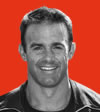Cheslin Kolbe’s national call-up is a big statement in terms of how the Springboks aim to play the game, writes former Bok scrumhalf NEIL DE KOCK.
Tackling the Wallabies away from home is always a huge challenge, underscored by the fact that the Springboks last won in Brisbane back in 2013. Suncorp Stadium, very much like a highveld venue for South Africa, has proved a happy hunting ground for Australia. However, the Boks can stem the tide.
I’m feeling pretty positive about the reaction Rassie Erasmus is going to get from his troops Down Under. If you reflect on history, the Springboks have always tended to bounce back with a particularly strong performance, having previously delivered a poor one. I’m quite confident in terms of the plans Erasmus has put together over the past fortnight. The Springboks have endured their fair share of travel recently – owing to a competition schedule which does them no favours – but on the plus side, they’ve had more time to prepare, with the four-team tournament having been on a break.
The inclusion of Kolbe in the Springbok match 23 is an exciting addition and one we should all look forward to. It’s a big statement in terms of how the Boks are looking to play. Winning Newcomer of the Year in the French Top 14, a high calibre league, shows you how well he has been playing. I’m delighted for him that his success hasn’t gone unnoticed and it will be wonderful to see him get the opportunity to showcase what he does week-in and week-out for Toulouse.
He is an electrifying player and is just a joy to watch. I don’t think his lack of height and size will prove a drawback whatsoever. By all accounts, there isn’t space for 12 Kolbes in a team within the modern game. However, he has proven in France that he can play with the biggest, fastest and strongest players. Rassie obviously has a plan in terms of how he intends to utilise Kolbe.
ALSO READ: Kolbe is a little dynamite – Paulse
During my Test career, I played with the likes of Brent Russell and Breyton Paulse, who were small in stature, but made a sizeable impact for the Springboks. We knew that if we could create time and space for them, they could rip a game apart within seconds because they were lethal game-breakers.
There has been some conjecture about Kolbe’s best position. He is set to feature against the Wallabies on the wing and there was once even talk of him making a long-term move to the scrumhalf berth. He played as a sweeper during his time with the SA Sevens side, but in the 15-man game, I would be hesitant to convert him into a No 9 based on size, speed and agility alone. Scrumhalf is a specialist position and it’s a whole new ball game at the top level. You cannot throw Kolbe into the Test cauldron and expect him to become a world-class No 9 overnight.
As far as game-breakers for Australia go, Israel Folau is the danger man opposition teams spend time analysing and trying to shut down. He is a kingpin for the Wallabies and when he’s on the field, things tend to happen. Michael Cheika will be delighted to have him back in the squad, and he will look to put the Springboks under pressure from an attack and aerial point of view.
In terms of their development as a team, the Wallabies are further ahead than the Springboks. Cheika has been with the national team since 2014 and has been able to stamp his authority on the way he wants to play.
The current Wallabies side doesn’t have as many marquee players compared to the team I faced in 2002. At that time, the Wallabies were beating the All Blacks and competing with the best teams in the world. Australian teams of yesteryear always found a way to win and boasted unbelievable leadership in the team. This side is growing under Cheika, but like the Springboks, their backs are against the wall. It remains to be seen how the Wallabies deal with the setbacks they have endured.
PREVIEW: Wallabies vs Springboks
Photo: Jono Searle/Getty Images





